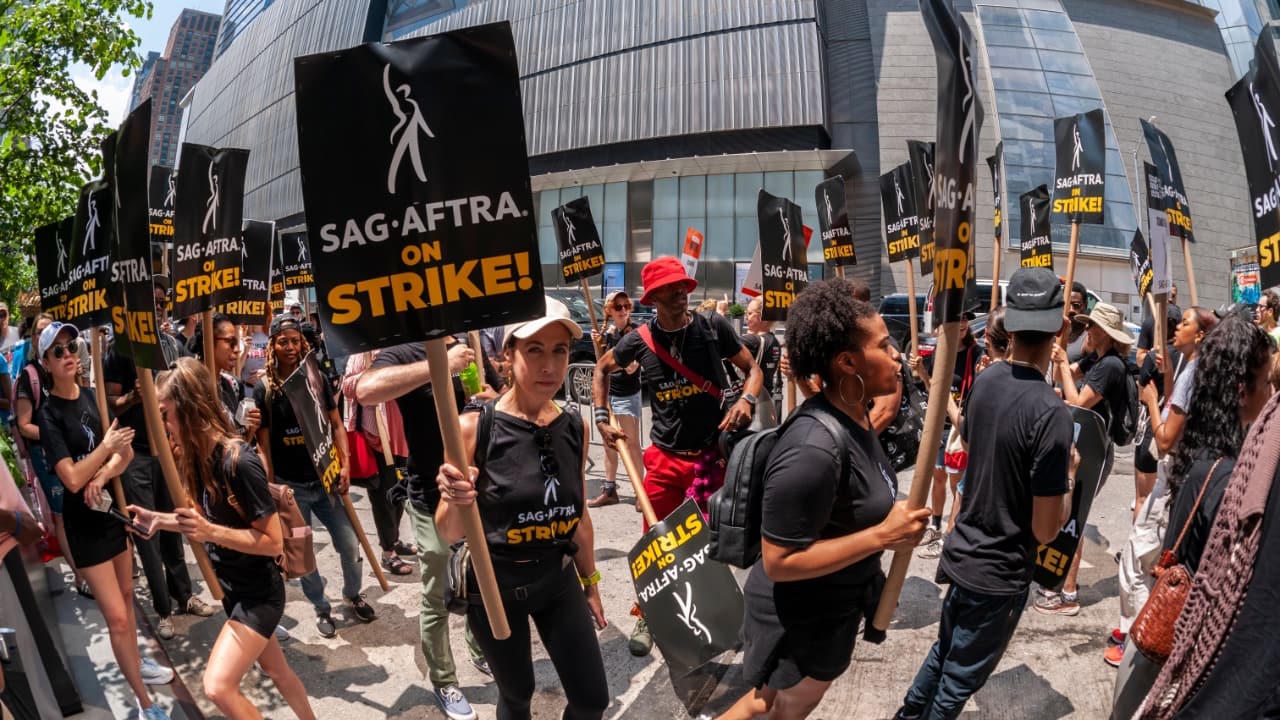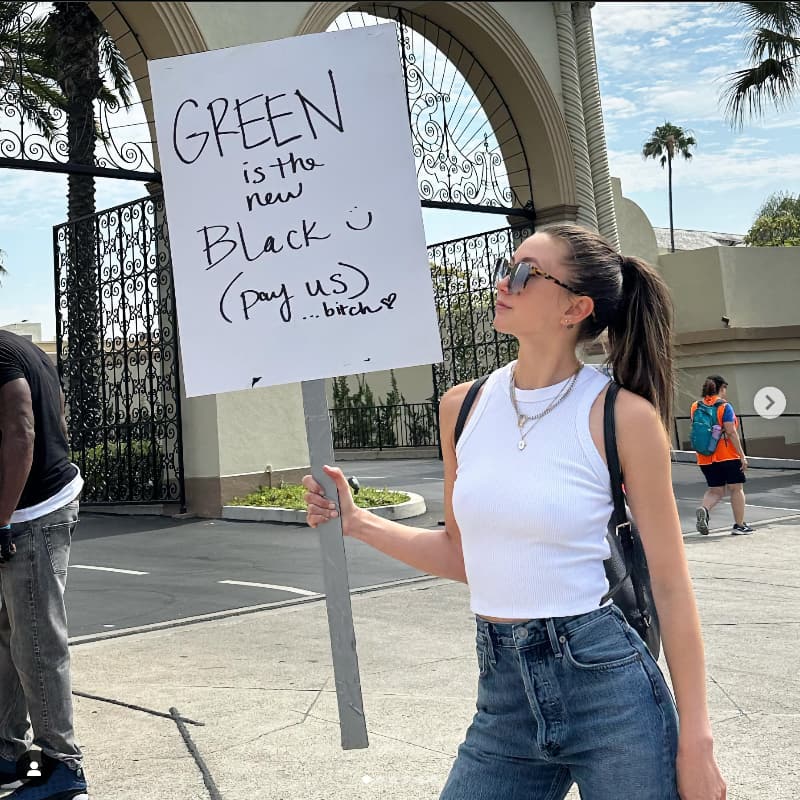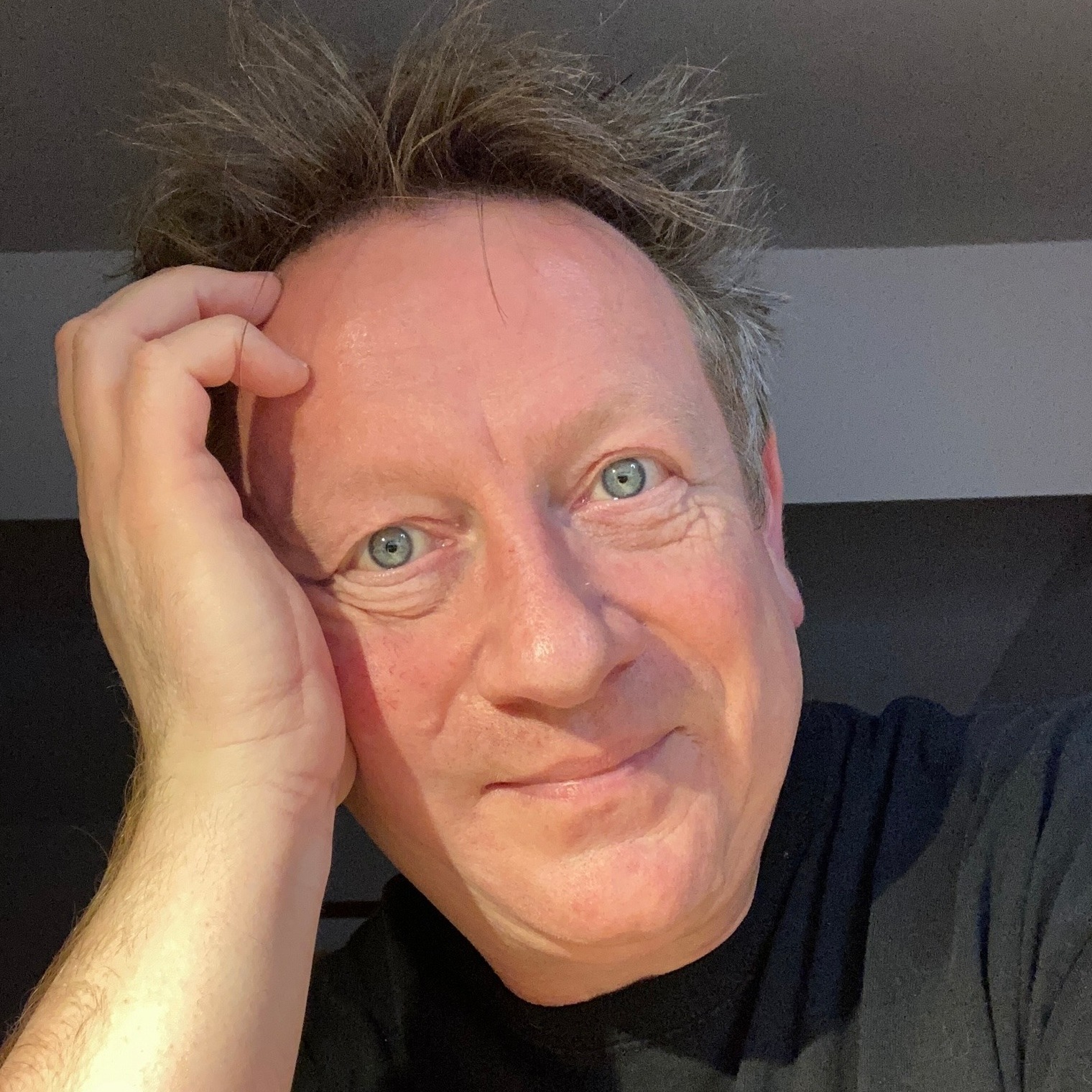
With the SAG-AFTRA US actors' union joining the WGA on strike, this is now the largest industrial action in Hollywood for 60 years, and battle lines seem to be hardening. What does that mean for the industry?
We wrote about the WGA strike back when it was only in its second week. Now, at time of writing, it is entering its 77th day and has become even more front page news as the Screen Actors Guild-American Federation of Television and Radio Artists (SAG-AFTRA) has joined in the dispute. That means that many of the shows that were still being filmed have mostly shut down too, with numerous industry websites publishing lengthening lists of TV shows and movies that have gone into hibernation mode and the cast of Oppenheimer walking out of its glitzy London premiere in realtime as the strike action was announced.
Suffice to say that San Diego’s Comic-Con is probably going to be a bust this year.
The 160,000 members of (SAG-AFTRA) and 11,500 members of the Writers Guild of America are in no mood to compromise either. Not only is this the biggest strike for more than 60 years but it might go on to be the longest too, with the unions saying they’re fully prepared to see the year out and the studios not looking to back down any time soon. And what is interesting is how the role of AI has become front and centre as the WGA action has gone on, joining the dispute over residuals and payments in the streaming era as very much a core issue.
So, what will the consequences be? This is how things may well play out for the major stakeholders in all this…
The viewers
First off, there’s going to be a lot less TV coming down the pipe. Production has ground to a halt on numerous tentpole movie releases, including Gladiator 2 and the Formula 1 movie that Apple is shooting that had so many people excited at the British Grand Prix a couple of weeks ago. Stranger Things 5? 2025 if you’re lucky. A strike of this potential length is less about hitting the pause button but more of coming to a complete standstill and then having to go through the long, drawn out process of spinning everything up again.
Expect to see a lot of reality TV shows — unscripted in the industry jargon — suddenly rushed into production. And more global content too. The US industry is huge but it is not the only game in many towns. For instance, the second series of House of the Dragon is able to wrap up shooting in the UK because it is primarily using UK-based actors (their local union, Equity, supports the strike but the UK’s restrictive labour laws make it illegal for its members to join in).
Global production continues, as it does for indie productions in the US which can get a waiver in some cases as long as they agree to the latest SAG-AFTRA position in negotiations, including an 11% wage increase to the minimum rates from the 2020 Theatrical/Television Agreement. However, it just so happens that a goodly chunk of what people want to see on a worldwide basis is based on mainstream American IP and there are no waivers for that.
The studios & streamers
This could possibly not have come at a worse time for the studios and the streaming companies who find themselves on the back foot in an economy where their footprint is already shrinking. For the first time ever the number of TV sources per viewer fell in the US to 6.4 from a 2022 high of 7.4, and the big summer blockbusters — the latest instalments of the Indiana Jones and Mission Impossible franchises — are underperforming at the box office.
More on this, and how we seem to have possibly passed peak TV, later this week. But for now, Holywood execs have a round of Q2 results to announce (Netflix goes first on Wednesday) and no doubt a lot of questions from analysts about how the strikes will affect their bottom line in the rest of the year. They may not have decent answers…
Production crew
Netflix is actually one of the companies that is best positioned to ride out the strike as it produces so much international content. In fact, only about half of its content library is US-originated nowadays, but that doesn’t mean that the strike won’t cause ripples around the world.
Bectu, the UK’s union for the creative industries, is one that has warned of a ‘perfect storm’ for industry freelancers already underway and, while standing solidly with its American comrades, cautions that the strike will only serve to exacerbate things if the studios fail to resolve it.
Film production in the UK employs around 100,000 people, both directly and indirectly, and was worth £12.9bn before the pandemic. It had just found its feet again post Covid and now there are fears that it is already heading back into the mire. That picture is repeated worldwide and the outlook is looking grim for a lot of people.
Writers and actors and the creative industry
Alongside the grimness is plenty of steely determination, however.
First, pay. As The Guardian’s article The 1 cent paycheque: here’s the awful truth about being an actor in the ‘golden’ age of streaming details, the residuals that actors receive is fairly pitiful. Kimiko Glenn, who played Brook Soso in the Netflix series Orange Is the New Black, posted a video to Instagram in which she opened a SAG-AFTRA foreign-royalty statement and discovered she had been paid just $27.30. That went extremely viral. And consider this nugget too: “To qualify for SAG-AFTRA health insurance, an actor is required to earn $26,470 from acting or residuals each year. It has been claimed that 75% to 90% of members are not able to reach this threshold.”

Kimiko Glenn protesting in the SAG-AFTRA strike in LA
Second, AI. This is possibly the lighting rod issue for the strikes as WAG/SAG-AFTRA find themselves on the frontline with a lot of creatives starting to mass behind them. Actually, scratch that. Make it pretty much anyone that works in the media and then widen it out to a significant proportion of the world’s white collar workers behind them; anyone whose bosses are looking at the prospect of replacing expensive, wayward humans with cheap, largely predictable code.
The WGA's issues with AI centre around scripts, while SAG-AFTRA’s big concern about AI lies in the wholesale replacement of actors. SAG-AFTRA wants to “Establish a comprehensive set of provisions to protect human-created work and require informed consent and fair compensation when a “digital replica” is made of a performer, or when their voice, likeness, or performance will be substantially changed using AI.”
So far the studios have failed to meet these concerns, leaving both principal performers and background actors vulnerable to having most of their work replaced by digital actors.
As former SAG Board member Justine Bateman wrote on Twitter: "Al has to be addresses [sic] now or never. I believe this is the last time any labor action will be effective in our business. If we don't make strong rules now, they simply won't notice if we strike in three years, because at that point they won't need us.”
And that is a feeling a lot of people can get behind.
Lessons from history
Let’s loop back and finish with Christopher Nolan. While he has said he won’t make any movies while the strike continues, he’s not a member of either striking union and has quite rightly been talking Oppenheimer still in interviews.
J. Robert Oppenheimer “fathered” the atomic bomb in 1945 and, after the first successful Trinity test, quoted from the sacred Hindu text of the Bhagavad Gita when he said, “Now I am become Death, the destroyer of worlds.” The actual text has many layers of meaning, but Oppenheimer’s interpretation seems to be more stark and literal, and he wrestled with the consequences of his actions for the rest of his life.
Nolan sees that same sort of strong inflection point reoccurring now.
“When I talk to the leading researchers in the field of AI right now, they literally refer to this as their ‘Oppenheimer moment,’” Nolan said on one panel. “Looking to his story to say, ‘Okay what are the responsibilities for scientists developing new technologies that may have unintended consequences?’”
And these are issues that you feel may not be sorted out simply in a few weeks of talks...
Tags: Business


Comments